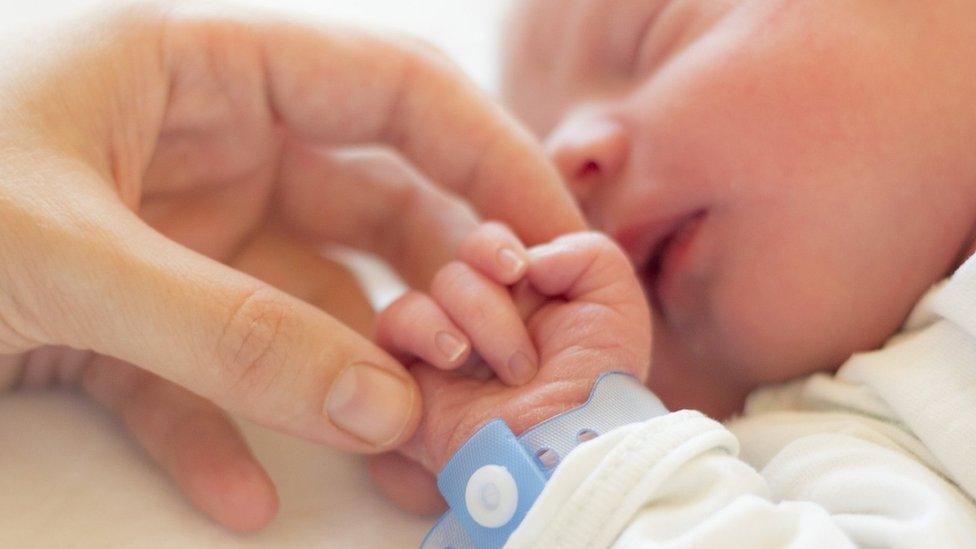Group B Strep: Shauna Lowry backs calls for more testing
- Published
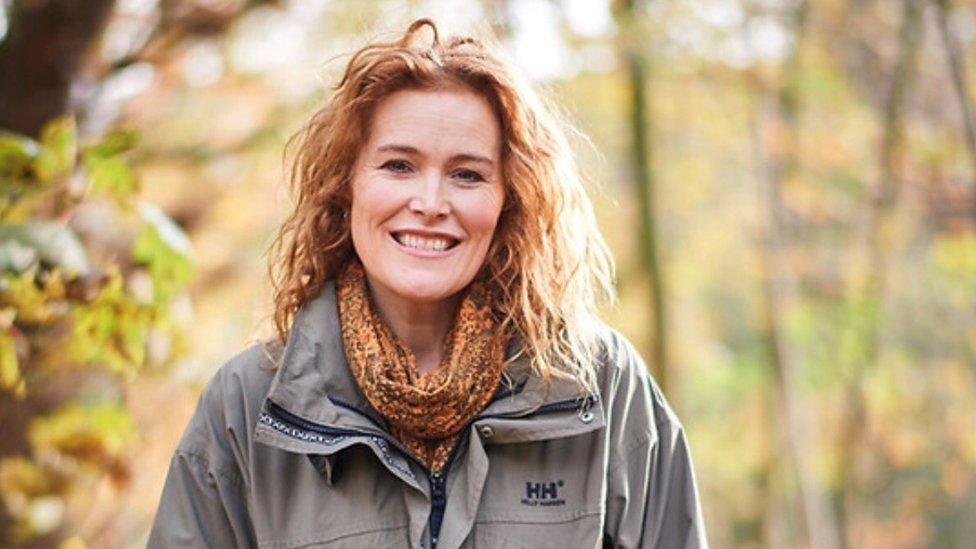
Shauna Lowry encourages pregnant women to ask for a GBS test
Belfast-born television presenter Shauna Lowry has backed calls for mandatory testing of all pregnant women in Northern Ireland for the Group B Streptococcus (GBS) infection.
In Northern Ireland, routine testing for the infection in pregnancy is not currently recommended, the Department of Health has said.
The department said there was "insufficient evidence to support it".
GBS is one of the most common causes of life-threatening infections in babies.
Ms Lowry, best known for her work on BBC programmes Animal Hospital and Countryfile said she was prompted to speak out about her own experience with GBS following Derry woman Shannon Doherty's call for widespread testing.
'I was horrified'
Shauna Lowry said she was diagnosed with Group B Strep during her first pregnancy in 2007.
"They just handed me an information sheet about Strep B and what it could do to my unborn child," Lowry told the BBC's North West Today programme.
"That in itself was extremely scary.
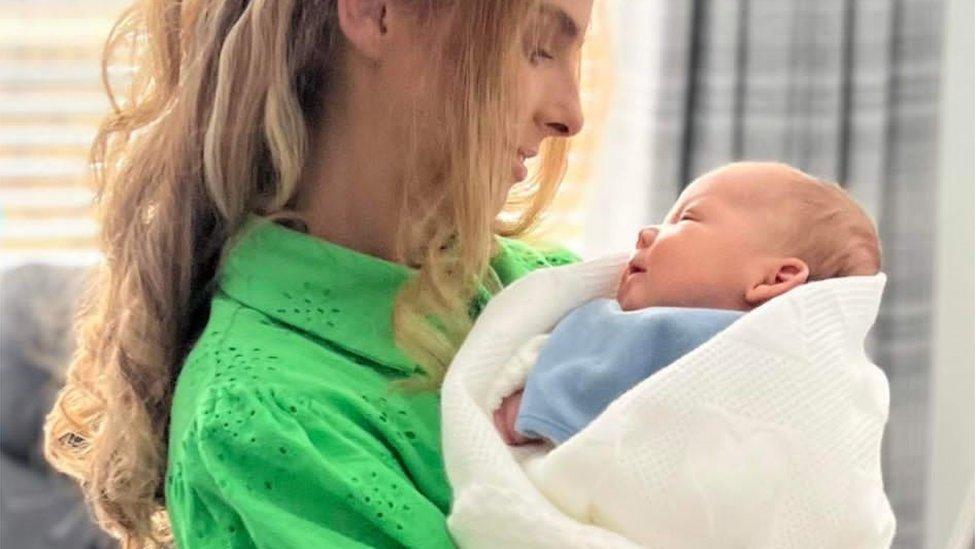
Lowry spoke out after reading the story of Shannon Doherty, whose baby Rían is now doing well back at home
"I had never heard of Strep B and this sheet said there was a potentially fatal risk to my baby.
"I was horrified," she said.
Lowry says medics monitored her pregnancy closely following her diagnosis and, after receiving the appropriate antibiotics, her baby girl was born safely.
But her first-hand experience has left her feeling very strongly that there should be UK-wide mandatory testing for GBS.
Most strains of the new-born infection can be prevented by testing during pregnancy and providing intravenous antibiotics to women in labour.
However, the UK does not routinely test for GBS, unlike the United States, Canada, Germany, France and Spain.

What is Group B Strep?
"Group B Streptococcus (GBS) is a common bacterium that can live in our bodies and which usually causes no harm," says Dr Pat O'Brien, consultant obstetrician at University College London Hospitals.
It is carried in the vagina or rectum of 20-40% of women in the UK, he says, so many babies come into contact with it when they are born. Usually this doesn't matter - only a small minority of babies develop an infection.
A surveillance study carried out between April 2014 and April 2015, external, found that one in every 1,750 babies born in the UK and Ireland developed an "early-onset" GBS infection (in the first six days of life). Of these, 5% died and 7% were thought to have been left with a "major, minor or possible disability", including brain damage, cerebral palsy, deafness, blindness or learning difficulties.
The study recorded 53 GBS deaths over the year, in babies less than 90 days old - roughly one per week.

"It's just a simple test that women need to ask for," said Lowry.
"I read Shannon's story and I just thought over 15 years after my daughter's birth, there's still no mandatory testing in the UK.
"So many countries do it as routine, so why can't we?
"It's just wrong and it really upsets me," she said.
One dead baby each week
According to the UK charity Group B Strep Support, two babies each day in the UK develop a GBS infection.
Most recover fully, but the charity said that one baby each week dies from a GBS-related infection and one baby each week recovers but with a life-changing disability.
In 2019, Northern Ireland's political parties jointly called for Group B Strep screening for all pregnant women.
Lowry said there now needs to be action.
"There really needs to be political movement on this. There is a total lack of awareness.
"GBS is just not publicised - if you know you have it, at least it highlights it could be a problem.
"In my experience the NHS were brilliant once they did know.
"GBS needs to be talked about and women need to ask for a test."
The Department for Health said its position with regard to routine testing was kept "under regular review".
"If you are concerned about GBS, discuss it with your doctor or midwife," it added.
- Published12 September 2023
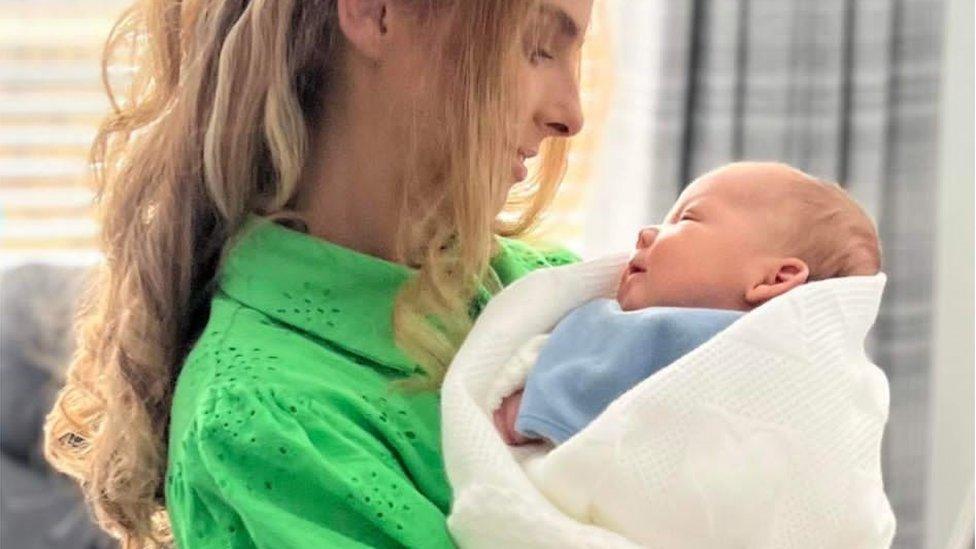
- Published2 July 2019
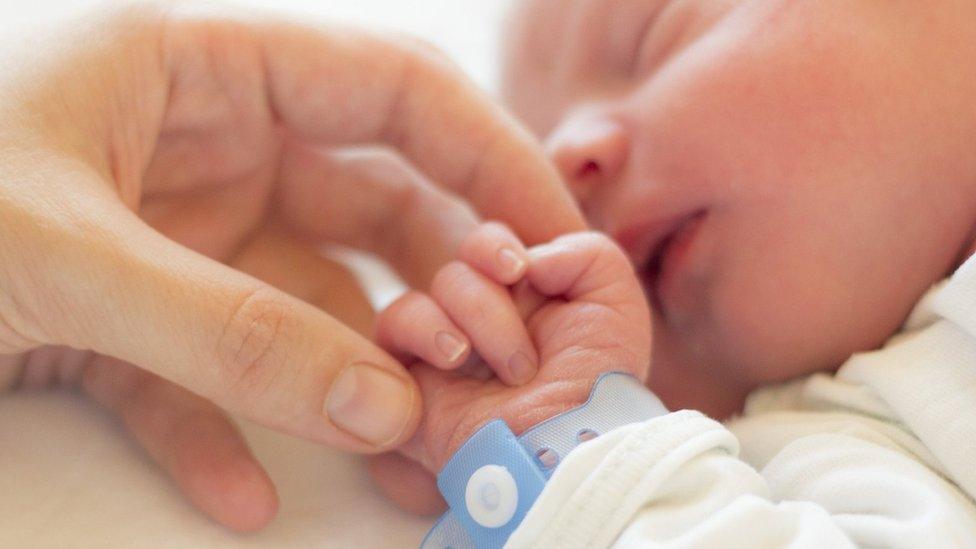
- Published4 June 2019
